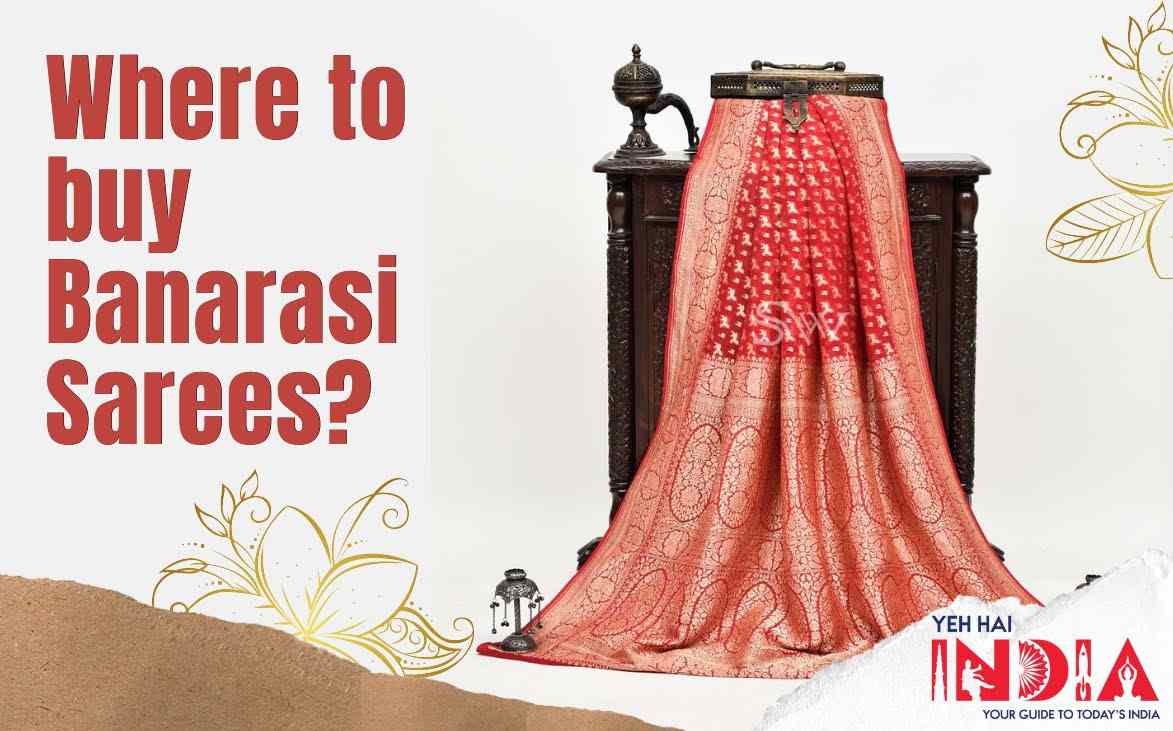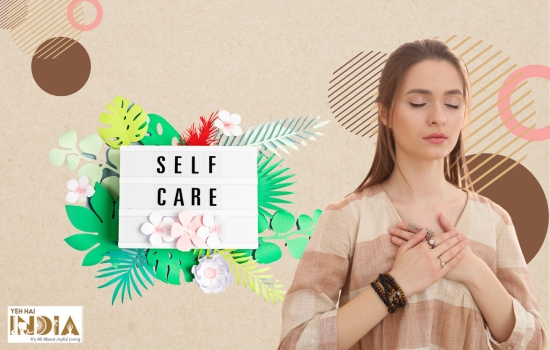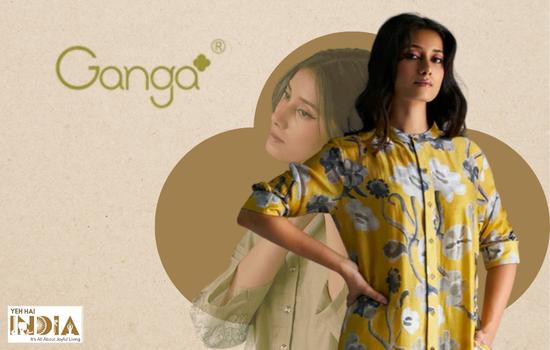P-TAL, an initiative to revive India’s only UNESCO – listed craft form, which started as a project by students of Enactus SRCC has now emerged into a self-sustainable brand and is on the path to become a household name all across the globe.
P-TAL stands for, “Punjabi Thathera Art Legacy” and also represents the Hindi name for brass.
Vision
“We have got more lives to change and more stones to turn. P-TAL relishes the true spirit of craftsmanship.” – Team P-TAL
Aim
P-TAL aims to revive the traditional age old craft of Thatheras of Jandiala Guru who handcraft brass and copper utensils through their technique of hammering.
They believe not just in the quality of the products but also quality in the lives of the artisans.
Hence, it practices a holistic craft model that aims to focus on the overall development of the artisans as well as the preservation of their craft.
Recommended Story – CHAMBA RUMAAL – A Peculiar Visual Art Form
History of Thatheras
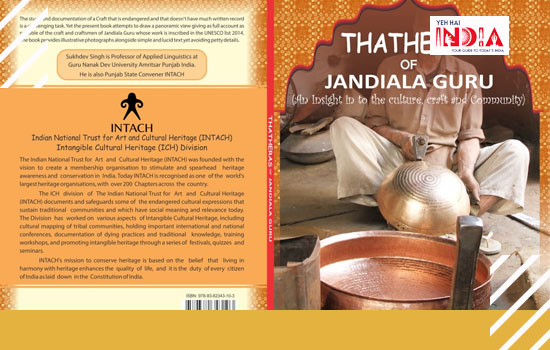
140 years ago, ‘Thak Thak’ the sound of the Thatheras’ hammers striking the lustrous brass was all that echoed the walls of Jandiala Guru, a craftsmen’s village near Amritsar.
Alas, these sound waves lessened as the number of families practicing the Thathera art form fell from 500 in the 1880s to a mere 30 today.
The fat brass patilis and parats that once adorned the palace of Maharaja Ranjit Singh retained their charm even in the 21st century but lost the market for them.
Gradually the craft ceased to exist with the younger generations of Jandiala moved to the towns and the thatheras practicing this pristine craft shattered.
Revival
A forlorn thathera once asked, “Who will buy our parats and patilis in the modern day market?” P-TAL has answered his question!
The team set out to revive the Thathera craft, the only art form from India to be listed under UNESCO’s List of Intangible Cultural Heritage.
Business Model and Products
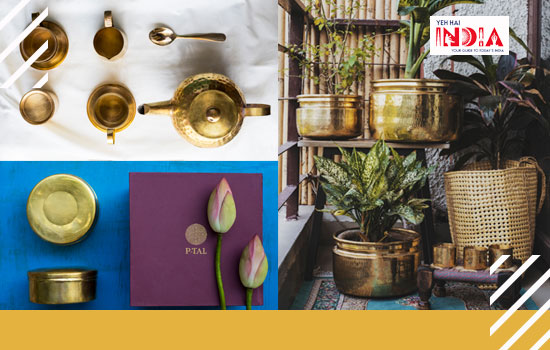
P-TAL has a three step business model which comprises of unification of artisans, design development, and training.
It is followed by marketing of products through online and offline channels.
The team has developed over 78 product designs that reflect the modern taste but retaines the traditional touch of the products.
The portfolio of products ranges from modern designs like cocktail glasses, snack bowls to traditional designs like Paraat, Kadhai, etc.
Apart from having the traditional value, the products also possess various medicinal values.
Hence, P-TAL envisions to also educating the people about these various magical benefits associated with these metals.
A product as simple as a teacup takes a day to get ready and that signifies the level of craftsmanship that goes into making it.
Every product carries the impression and unique hammering done meticulously for hours by an artisan.
The youth of Jandiala have returned back to their legacy from their hideout in towns.
Today, the walls of Jandiala echo the ‘Thak Thak’ all the stronger.
Establishment as a Brand
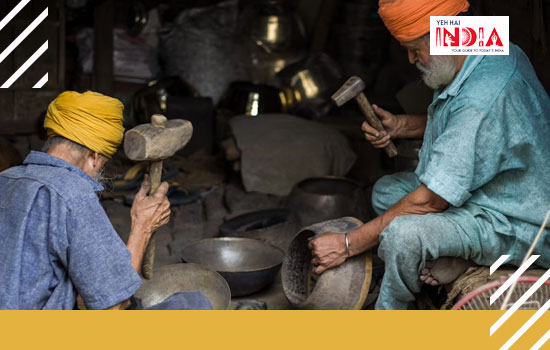
The initiative started with artisans from Jandiala Guru, a small town near Amritsar.
It has now scaled its impact to artisans from Haryana, Madhya Pradesh as well as Odisha.
Over the years, P-TAL has impacted over 42 artisans and has helped to increase their monthly incomes by over 600% (rise from Rs 2000 per month to over Rs 14000 per month).
P-TAL has taken the products of the artisans to global platforms through marketing on its own website (https://ptal.in/) and several other e-commerce marketplaces like Tata Cliq, Okhai, LBB, Itokri, Etsy.
It also markets through retail channels in countries like Australia, New York, UAE, Canada, Singapore and many more.
The products are also marketed through the brand’s social media channels which have more than 30,000 active followers.
Recommended Story – Kalamkari: A Unique Artform
Team and their Contributions
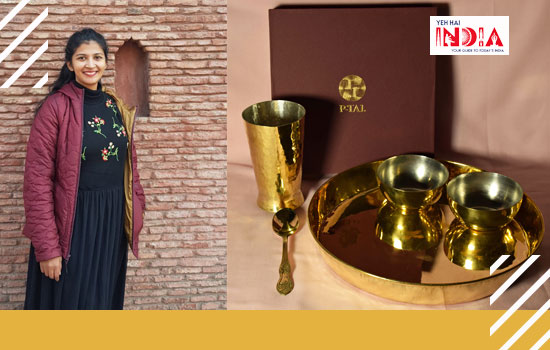
A lot of stories about the artisans and their products can be found on the brand’s social media channels.
The brand is led by Ms Kirti Goel, a design graduate from Pearl Academy who has been with P-TAL right from its institutionalization.
Under her guidance, P-TAL has received many accolades like SKOCH Gold Award and letter of appreciation from UNESCO.
Aditya Agrawal, who was the Project Director at Enactus SRCC led P-TAL towards scalability and sustainability during his time in college.
He has been spearheading the growth and brand building of P-TAL full time instead of a per-placement offer that he received from a global consulting firm.
Gaurav Garg, another Co-Partner at P-TAL, spearheads the growth and development of artisans and aims to incorporate artisans from all across India.
P-TAL aims to bring back younger generations to this craft by enhancing the demand of these products and ensuring a fair price for the efforts put in by artisans.
They are willing to transform old traditions into trends and convert practice into the profession and strive to mold the vessels of hope for these artisans.
Also Read – Ikat: The journey of this dyeing technique in India








